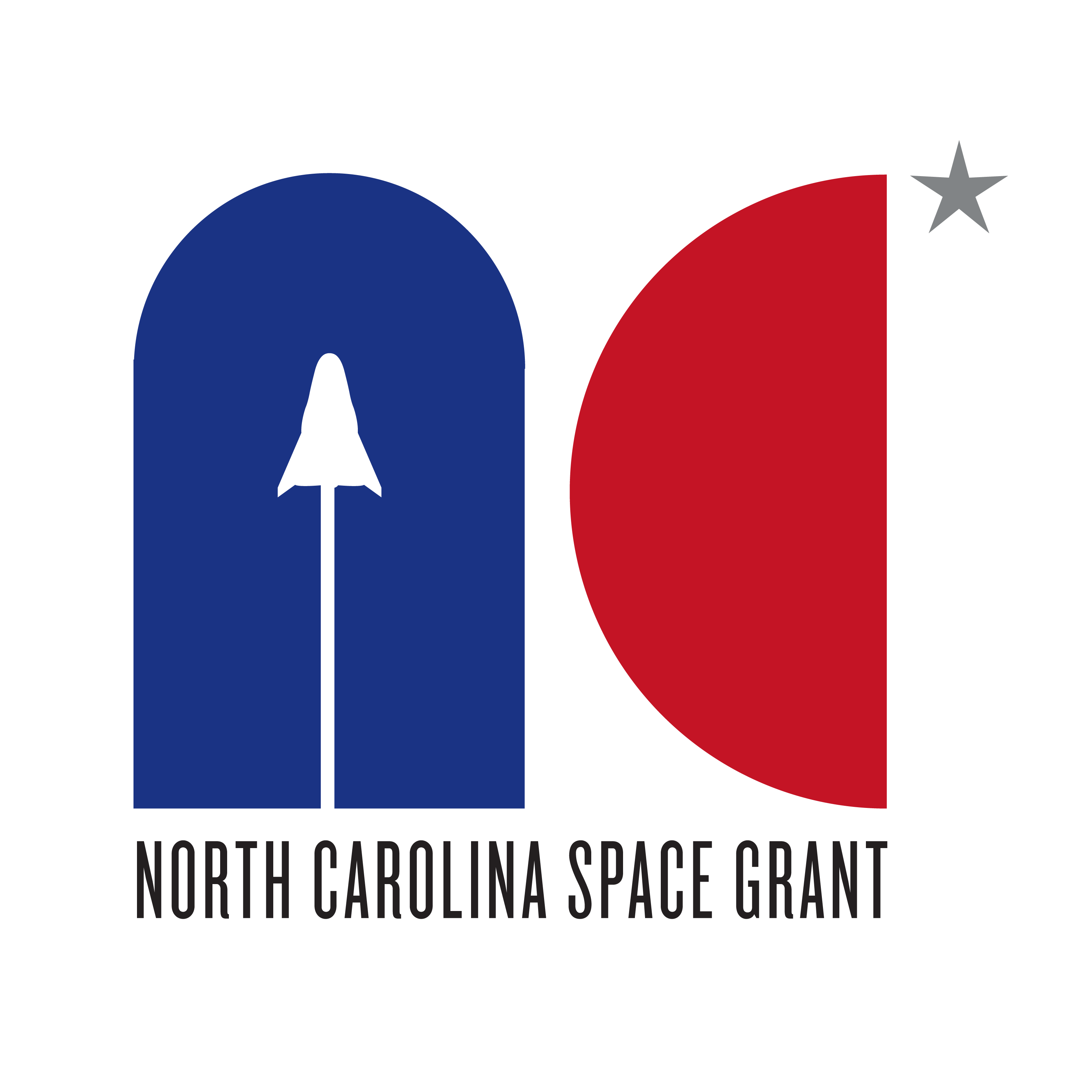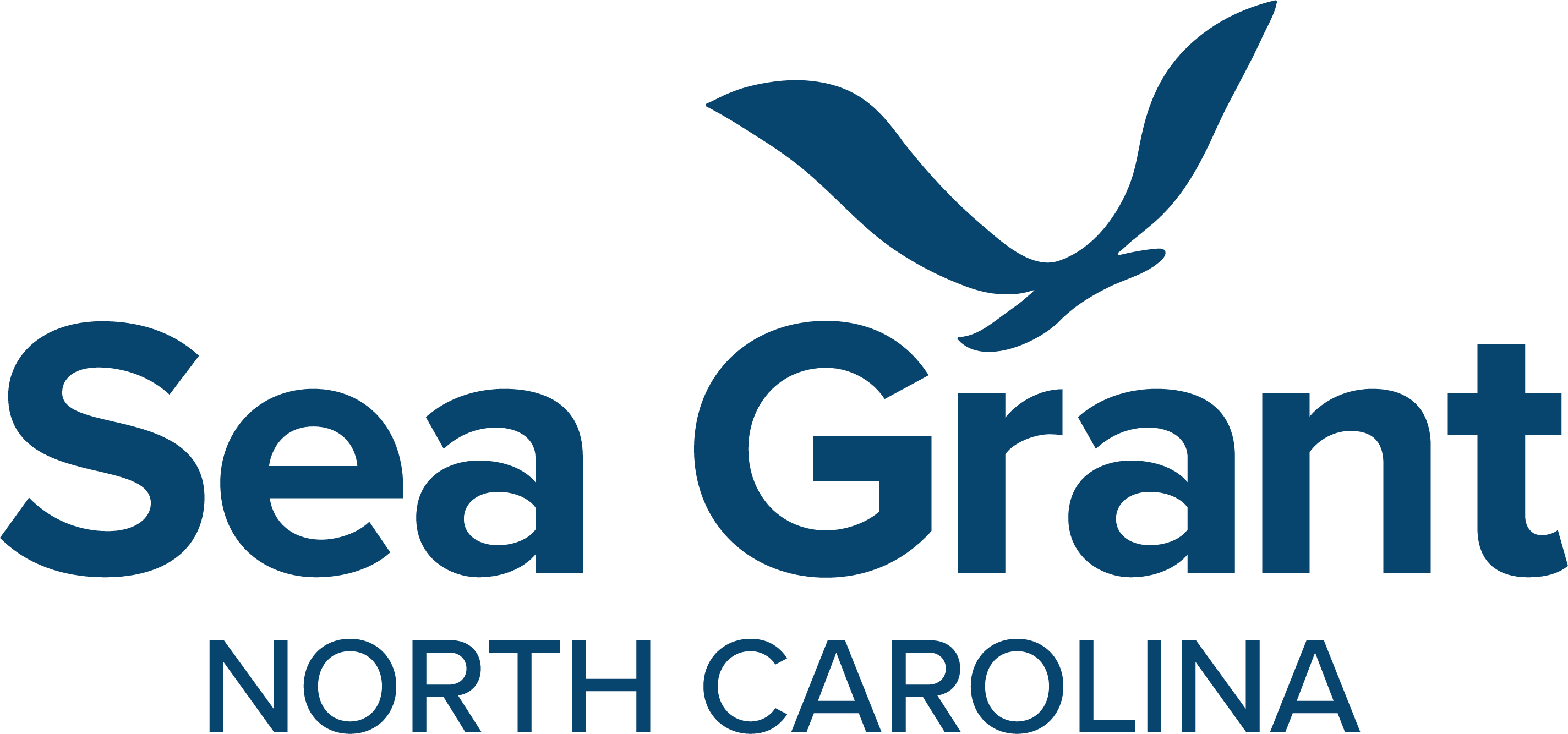NC Sea Grant – NC Space Grant Graduate Research Fellowship
Deadline
April 18, 2025 at 5 PM ET
Open to
Graduate students enrolled at an accredited college or university in NC
Research Topic
Sediment budgets, erosion, habitat transformations, management response. Research process must include the use of NASA/NOAA data, measurement instruments, or remote-sensing capabilities
Application Resources


Overview
The joint North Carolina Space Grant – North Carolina Sea Grant Graduate Research Fellowship Program invites interdisciplinary proposals from across the state based on four broad focus areas.
2025 RFP Focus Areas:
- Sediment Budgets
- Erosion
- Habitat transformations and the resultant impact on biota
- Management Response as it relates to developing mechanisms, methods and/or tools to help natural resource managers make optimal decisions
The fellowship requires the use of data from vast archives and remote-sensing capabilities available through the National Aeronautics and Space Agency (NASA) and the National Oceanic and Atmospheric Administration (NOAA) as part of the research process. Successful proposals must adeptly utilize relevant measurement instruments and/or remote-sensing data sources from NASA, NOAA, or other sources that can include, but are not limited to, radiometers, spectroradiometers, satellite sensors, LIDAR, aerial imagery, and other data collected from airplanes, unmanned aerial vehicles, and/or unpiloted submersibles in the execution of the proposed work.

Regional Approach
Coastal Louisiana and North Carolina are extremely vulnerable to the loss of sediment in our coastal systems and the resultant impact to our coastal habitats and biota. Both states need new information and approaches to help generate mitigation and adaptation responses. Louisiana Sea & Space Grant Programs and North Carolina Sea & Space Grant Programs wish to facilitate a regional partnership to concurrently fund a graduate student in each state. Our hope is addressing the problem in both states concurrently, will create synergies and additional understanding above what would have occurred if the work occurred independently in each state. While the Louisiana- and North Carolina-based graduate students will each be working independently on their own project, they will be required to engage with each other as a cohort. The sponsoring agencies will help ensure that this collaboration occurs. This will allow for the transregional aspect of this effort to develop and provide unique professional development opportunities for each student (and their faculty mentors), as well as ensure that lessons learned in both states would be transferred broadly across each region represented. Sediment loss is driven by land-side as well as water-side processes. Both are relevant topics for this RFP and we welcome proposals focused on either, or both.
Requirements
Students responding to this RFP must:
- Be United States citizens.
- Be a full-time, enrolled graduate student at an accredited college or university within North Carolina. Louisiana-based students should apply through that state.
- In good academic standing with a GPA of 3.0 (out of 4.0) or higher.
- Adeptly utilize relevant measurement instruments and/or remote-sensing data sources from NASA, NOAA, or other sources that can include, but are not limited to, radiometers, spectroradiometers, satellite sensors, LIDAR, aerial imagery, and other data collected from airplanes, unmanned aerial vehicles, and/or unpiloted submersibles in the execution of the proposed work.
- Have their proposed research supervised by a faculty mentor.
- Be willing to present their research findings at a meeting, conference, or other formal gathering of professional organization(s), association(s), etc. among peer researchers, policymakers, or another relevant audience.
- Be willing to present their project at the 2025 NC Space Grant symposium.
Funding
- The funding amount is $10,000.
- Project performance period is 6-1-2025 through 5-31-2026.
- Funding will be provided via direct student stipend installments allocated across the performance period pending project milestones are being met.
- Additional travel support to encourage cohort development/regional collaboration is available.
Application
Students should submit a complete proposal package (see below) via the Space Grant application portal which can be found here. Click new user registration button to begin the application. Proposals should be uploaded as one PDF file. The proposal should be in 12-point, Arial font, with 1-inch margins. Incomplete and late applications will not be accepted.
Requirement Proposal Elements
A complete proposal package must include the following:
(Items 1-4 are limited to 4 pages.)
- Title Page: Include student name and contact information, academic institution, major, and faculty mentor contact information.
- Description of Proposed Research Project: A statement written by the student in consultation with a faculty mentor should describe: (1) The key elements of the proposed research and plan of study, including stated research question/s, clear description of how the work aligns with an RFP focus area/s, and what remotely sensed data/instruments and/or sources will be used; (2) What the student intends to accomplish, and (3) Clear description of how the proposed work is related to the interest of all of the following: NASA/NC Space Grant, NOAA/NC Sea Grant, and the coastal regions of North Carolina and Louisiana.
- Materials and Methods: Detailed enough to ensure reviewer confidence in the ability of the project to answer the stated research questions. Be sure to include any needed statistical methods.
- Timeline: Provide a clear timeline of all project activities.
- Outreach Plan (maximum of 1 page): A detailed plan of how the project results will be disseminated. This should include your plan to present research methodology and/or research findings at a meeting, conference, or other formal gathering of professional organization(s), association(s), etc. among peer researchers, policymakers, or another relevant audience (presentation of research at the 2026 NC Space Symposium is required). Also, be sure to discuss how your work can be translated to managers if applicable and/or local government and landowners. Finally, given the regional approach desired by the four partnering entities, please include some thoughts on how you foresee working with the Louisiana student and how your work might be applicable to that region.
- Data Management Plan (limited to two pages): In addition to the above application, to comply with NOAA’s data and publication sharing directive for grants and contracts, version 3.0, each applicant must develop and submit with their application a data management plan (DMP). The DMP does not count toward the four-page limit, described above. Guidance for developing data management plans is provided on the National Sea Grant Program website. Plans should be no more than two pages and should include: descriptions of the types of environmental data and information expected to be created during the course of the project; the tentative date by which data will be shared; the standards to be used for data/metadata format and content; methods for providing data access; approximate total volume of data to be collected; and prior experience in making such data accessible. If your project is not expected to develop any environmental data, then your DMP may simply include the declaration: “This proposal is not expected to generate environmental data. Therefore, a Data Management Plan is not required.”
- Budget Plan (limited to one page): This award will be distributed via direct student stipend installments allocated across the performance period pending project milestones are being met. It is the graduate student’s responsibility to manage their budget and determine if any of the funds will be used to cover fieldwork expenses, conference travel, materials & supplies, or undergraduate assistants. Please include a statement here as to how you intend to spend your $10,000. This is not meant to be a detailed project budget, just your current vision for how this funding would help you complete this project.
- Current student CV (limited to two pages).
- Letter of support from the applicant’s faculty mentor.
Proposals may also contain a Literature Cited section, and up to two additional stakeholder letters of support if needed. These elements do not count toward the page limits described above.
Deadline
Application materials must be received by 5 p.m. ET on Friday, April 18, 2025.
Review Process
Each received complete application will be reviewed by a technical review panel. The panel will be made up of participating program staff and other experts as needed. Proposals will be ranked based on the quality of the proposed work, adherence to the instructions provided in this request for proposals, alignment with RFP focus area/s, clear use of remote sensed data, relevance of potential project findings, thoughtfulness of the outreach plan, and the strength of the faculty support letter.
Past Research Fellows
Read about past NC Space Grant – NC Sea Grant Graduate Research Fellows.
Contacts
Please send any questions about this opportunity to:
- Aman Kohli, North Carolina Sea Grant, akkohli@ncsu.edu.
- Sandy Canfield, North Carolina Space Grant, srcanfie@ncsu.edu